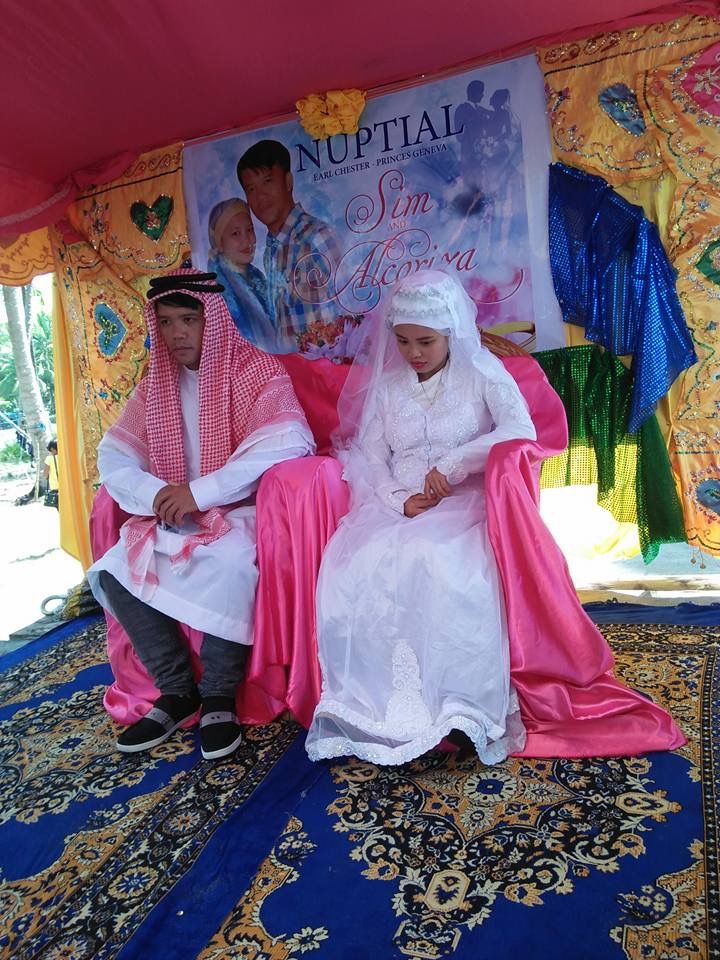A Muslim wedding ceremonial rites

TGIS  three times. Then the couple and two male witnesses sign the contract, making the marriage legal according to civil and religious law. Following traditional Islamic customs, the bride and groom may share a piece of sweet fruit, such as a date. If men and women are separated for the ceremony, a male representative called a wali acts in the bride's behalf during the nikah.
Vows and Blessings
The officiant may add an additional religious ceremony following the nikah, which usually includes a recitation of the Fatihah—the first chapter of the Quran—and durud (blessings). Most Muslim couples do not recite vows; rather, they listen as their officiant speaks about the meaning of marriage and their responsibilities to each other and to Allah. However, some Muslim brides and grooms do say vows, such as this common recitation:
Bride: "I, (bride's name) offer you myself in marriage in accordance with the instructions of the Holy Quran and the Holy Prophet, peace and blessing be upon him. I pledge, in honesty and with sincerity, to be for you an obedient and faithful wife."
Hi! I am a robot. I just upvoted you! I found similar content that readers might be interested in:
https://www.theknot.com/content/muslim-wedding-ceremony-rituals
Congratulations @preciousaltheia! You received a personal award!
Happy Birthday! - You are on the Steem blockchain for 1 year!
Click here to view your Board
Congratulations @preciousaltheia! You received a personal award!
You can view your badges on your Steem Board and compare to others on the Steem Ranking
Vote for @Steemitboard as a witness to get one more award and increased upvotes!